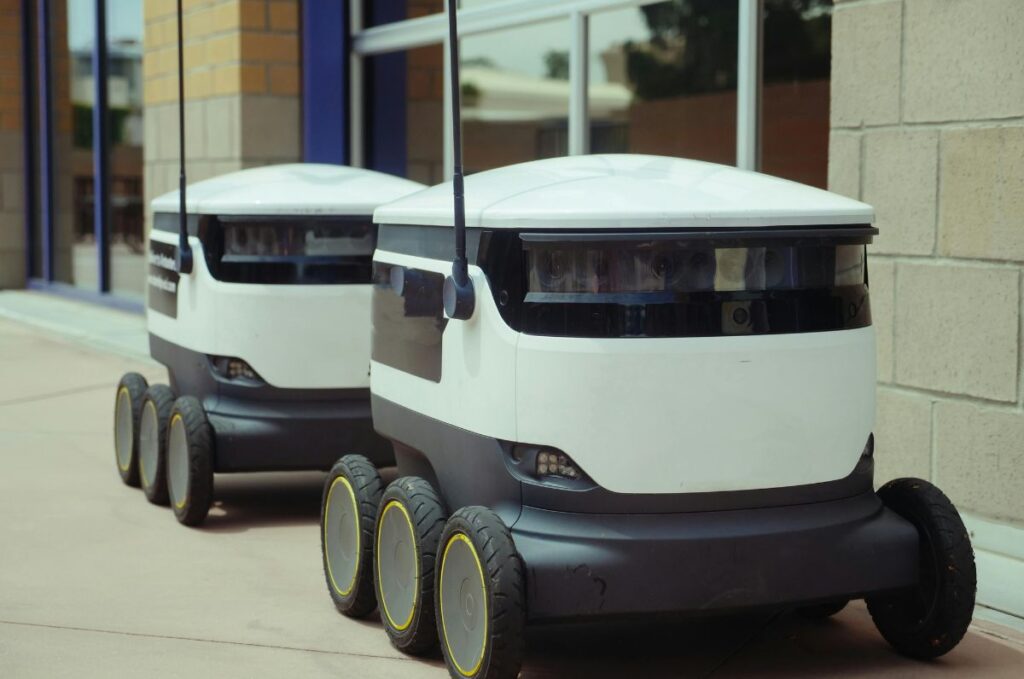The Future of Artificial Intelligence: How AI is Shaping Tomorrow’s World
Artificial Intelligence (AI) is no longer a concept confined to science fiction; it’s a rapidly growing field that is transforming industries and revolutionizing our everyday lives. From virtual assistants like Siri and Alexa to self-driving cars and personalized recommendations, AI has become a significant part of modern technology. But what does the future hold for AI? Let’s dive into the exciting ways AI is set to shape the world of tomorrow.
1.AI in Healthcare: Revolutionizing Patient Care

One of the most promising applications of AI is in the healthcare sector. AI-powered tools can analyze vast amounts of medical data in seconds, helping doctors diagnose diseases faster and more accurately. From detecting early signs of cancer in medical images to personalizing treatment plans, AI has the potential to save countless lives.
AI is also being used to improve healthcare accessibility. Virtual health assistants powered by AI can help patients monitor their conditions from home, reducing the need for frequent hospital visits. In the future, we may even see AI-driven robots performing surgeries with pinpoint accuracy.
- Key Benefit: Faster diagnostics and more personalized patient care.
- Future Impact: Reduced medical errors, improved treatment outcomes, and accessible healthcare for all.
2.AI in Education: Personalized Learning Experiences

The traditional one-size-fits-all approach to education is gradually being replaced by personalized learning, thanks to AI. AI-driven platforms can assess a student’s strengths and weaknesses, offering customized learning paths to help them excel. Adaptive learning systems can adjust the difficulty level of tasks based on the student’s performance, ensuring optimal progress.
AI also aids in automating administrative tasks like grading and scheduling, freeing up time for teachers to focus on more meaningful interactions with students.
- Key Benefit: Customized education and more efficient learning processes.
- Future Impact: Enhanced learning experiences, increased student engagement, and more effective teaching methods.
3.AI in Transportation: Autonomous Vehicles

One of the most exciting innovations in AI is the development of autonomous vehicles. Self-driving cars, powered by advanced AI algorithms, are designed to reduce human error, making transportation safer and more efficient. Companies like Tesla, Waymo, and Uber are leading the charge in developing fully autonomous vehicles that can navigate complex traffic patterns and avoid accidents.
In the future, we can expect autonomous transportation systems to expand beyond cars, potentially revolutionizing public transportation with self-driving buses and AI-controlled air travel systems.
- Key Benefit: Safer roads and reduced traffic congestion.
- Future Impact: Fewer accidents, reduced carbon emissions, and more efficient transportation networks.
4.AI in Customer Service: Smarter Virtual Assistants

Virtual assistants and chatbots are becoming increasingly sophisticated, with AI enabling them to understand and respond to customer queries more accurately. These AI-powered tools can handle a wide range of tasks, from answering basic questions to processing transactions. As machine learning algorithms continue to improve, virtual assistants will become even more capable of handling complex interactions.
Companies are already using AI to provide 24/7 customer service, leading to faster response times and improved customer satisfaction. In the near future, AI may also be able to predict customer needs, offering personalized recommendations and proactive support.
- Key Benefit: Faster customer service and more accurate responses.
- Future Impact: Reduced wait times, more personalized experiences, and cost-effective business solutions.
5.AI in Everyday Life: Smart Homes and Devices
![photo of a smart home setup]](https://magazine.radarze.com/wp-content/uploads/2024/10/photo-of-a-smart-home-setup-1024x679.jpg)
Smart homes powered by AI are becoming increasingly common. Devices like smart thermostats, lighting systems, and security cameras use AI to learn your preferences and automatically adjust to meet your needs. These systems can help you save energy, enhance security, and make life more convenient.
Voice-controlled AI assistants like Amazon’s Alexa and Google Home can now perform a wide range of tasks, from playing music to ordering groceries. As AI continues to evolve, we can expect even more intelligent devices that seamlessly integrate into our daily lives, making our homes smarter than ever before.
- Key Benefit: Increased convenience and energy savings.
- Future Impact: Fully automated homes with seamless AI integration.
As AI technology continues to advance, its influence on our lives will only grow. From healthcare and education to transportation and customer service, AI is poised to revolutionize industries and redefine how we live and work. The future of AI is bright, and its potential is limitless.

